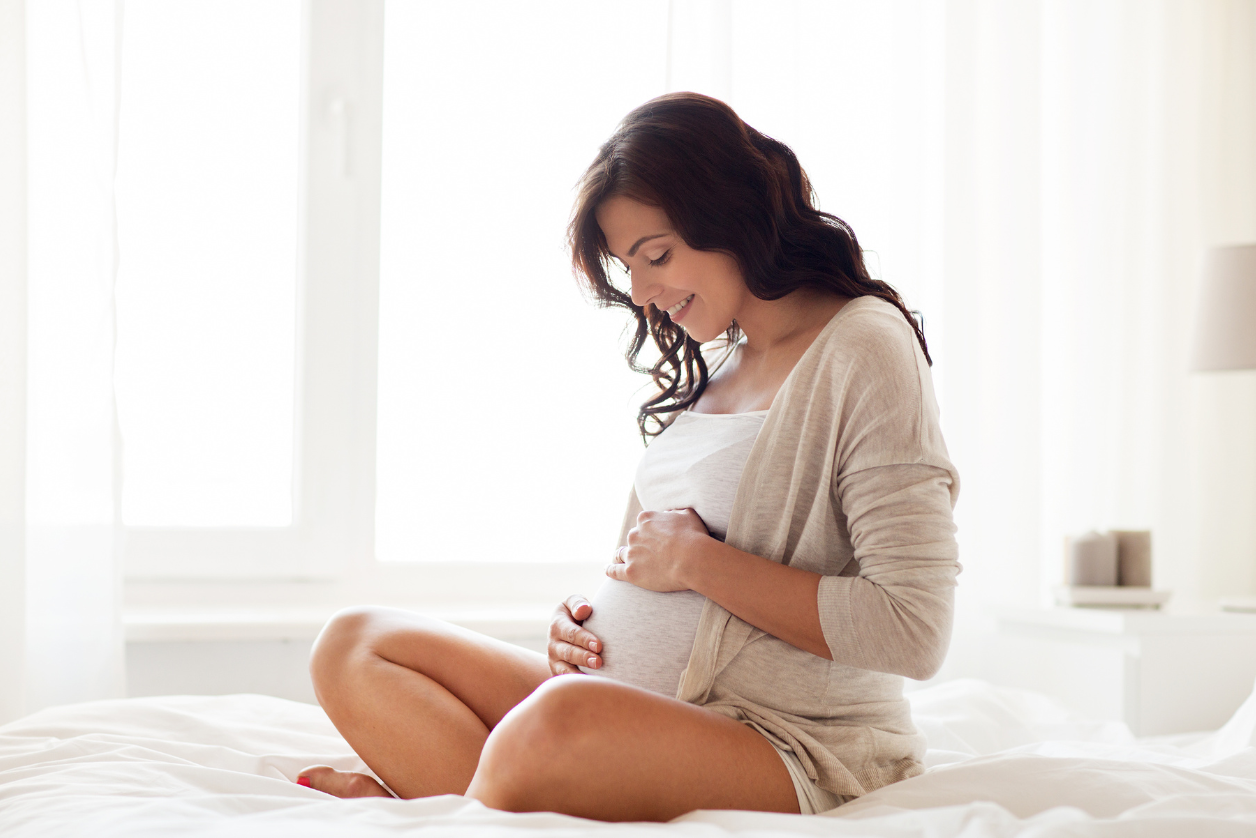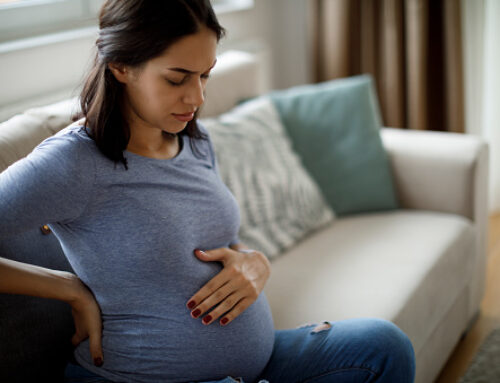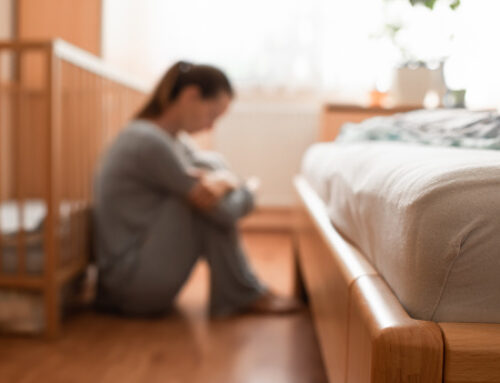Pregnancy is an exciting and life-changing event that affects women’s health. But knowing if you’re actually pregnant can be challenging, especially during the early stages. Knowing the early signs of pregnancy can help you prepare and take better care of yourself and your growing baby. In this blog, we’ll discuss the early signs and symptoms of pregnancy and answer some of the most common questions about pregnancy.
What Are the Early Signs of Pregnancy?
The first telltale signs of pregnancy usually occur within the first few weeks after conception. The most common early signs of pregnancy include:
Missed Period: A missed period is usually the first early sign of pregnancy for most women. However, there are cases of ladies bleeding only minimally or experiencing spotting in their early pregnancy stages, which can be confused with a menstrual period.
Fatigue: Feeling tired and sleepy is a common symptom of early pregnancy. This is because your body is producing more hormones to support the growth and development of your baby.
Nausea: Morning sickness is a classic sign of early pregnancy. You can experience nausea at any time. This pregnancy symptom may be accompanied with or without vomiting during the early stages of pregnancy.
Breast Changes: Your breasts may feel sore, tender, or swollen in the early stages of pregnancy because your body is getting ready to provide nutrients to your baby.
Increased Urination: You may notice that you need to urinate more frequently than usual during the first stages of pregnancy. This is because your body produces more fluids to support your baby’s growth.
What Are the Other Pregnancy Symptoms?
Apart from the early signs of pregnancy, there are other symptoms you may experience at the start of your pregnancy. These include:
Mood Swings: Hormonal changes in your body can cause mood swings, anxiety, and irritability during the early stages of pregnancy.
Craving or avoiding certain foods: Many women may crave or avoid certain foods during the early stages of pregnancy. This is because of hormonal changes in their bodies.
Spotting: Light spotting or bleeding may occur during the early stages of pregnancy, especially around when your period is due. But should you bleed heavily, you should contact your doctor immediately.
Bloating: Hormonal changes in your body can cause bloating and gas.
Constipation: Digestive problems such as constipation are expected during the early stages of pregnancy, caused by hormonal changes in your body.
Is It Possible to Get Your Period When You Are Already Pregnant?
Getting your period when already pregnant is not unusual. However, some bleed lightly or experience early pregnancy spotting during the early stages. Some may confuse these symptoms with a menstrual period. Contact your doctor immediately if you experience any unusual bleeding or have concerns.
When Does Pregnancy Start to Show?
Most women start to show signs of pregnancy around 12 weeks. However, this will be different for every woman. Factors such as body type, weight, and height can affect when you start to show obvious pregnancy signs.
What Does Early Pregnancy Spotting Look Like?
In most cases, you should look out for blood spots that are light, pink, or brown. Implantation bleeding can be one cause of the spotting. This happens when an already fertilized egg embeds into the uterine lining. Contact your doctor immediately if you experience any unusual bleeding or have concerns.
When Should You Take a Pregnancy Test?
When you suspect you may be pregnant, taking a pregnancy test is the first step in confirming your pregnancy. However, timing is crucial to get accurate results from the test.
On that note, here’s what you need to know about taking a pregnancy test:
How Pregnancy Tests Work: Before we dive into the basics of undergoing a pregnancy test, it’s crucial to understand how it works. Most of these tests are taken at home through the detection of human chorionic gonadotropin (hCG) presence in your urine. The placenta usually produces this hormone after the implantation of a fertilized egg in the uterus. Pregnancy tests vary in their sensitivity to hCG, with some tests able to detect it as early as six days after fertilization.
When To Take a Pregnancy Test: If you have regular periods, taking a pregnancy test one week after your missed period will provide the most accurate results. This is because most tests can detect hCG levels in your urine at this point. Taking a pregnancy test too early, before your period is due, can result in false results because your hCG levels may not be sufficient.
When Is the Right Time to Take A Pregnancy Test?
The best time to take a pregnancy test might be challenging if you have irregular cycles. It is preferable in this situation to wait at least three weeks after having sex before checking for pregnancy. Your body will have enough time to create hCG during this period for the test to pick it up. Alternatively, if you use an ovulation predictor kit, you can monitor your basal body temperature to ascertain the right time to take a pregnancy test or track your ovulation.
Can You Get Your Period While Pregnant?
While getting your period during pregnancy is possible, it shouldn’t be the same as having a regular menstrual period. Some ladies may bleed lightly or spot in their early pregnancy days. This is called implantation bleeding and occurs when your period is almost due. However, if you bleed heavily during pregnancy, you should be careful, as it could be a miscarriage sign or another complication, and seek medical attention immediately.
When Does Pregnancy Start to Show?
The physical signs of pregnancy are different in every woman, and it’s not uncommon for some women to show pregnancy earlier or later than others. For most women, pregnancy symptoms show around six weeks after their last menstrual period. These symptoms include extreme tiredness, nausea, tender breasts, and frequent urination. However, some women may not experience symptoms until later in their pregnancy.
What Does Early Pregnancy Spotting Look Like?
As mentioned earlier, some ladies may bleed lightly or experience spotting during early
pregnancy. The color for this spotting is pink or brown and is not as heavy as a menstrual period. The bleeding may last for a few hours or days and may be accompanied by mild cramping. If you experience heavy bleeding, severe cramping, or other concerning symptoms, seek medical attention immediately.
Contact Us
Thank you for reading our comprehensive guide on the early symptoms of pregnancy. If you are experiencing any of these symptoms and suspect you may be pregnant, look no further than TopLine MD. Our experienced healthcare providers are dedicated to helping patients and providing the highest quality of care. We are here to support you every step of the way. Contact us today!
The TopLine MD Alliance is an association of independent physicians and medical practice groups who are committed to providing a higher standard of healthcare services. The members of the TopLine MD Alliance have no legal or financial relationship with one another. The TopLine MD Alliance brand has no formal corporate, financial or legal ties to any of the affiliated physicians or practice groups.




